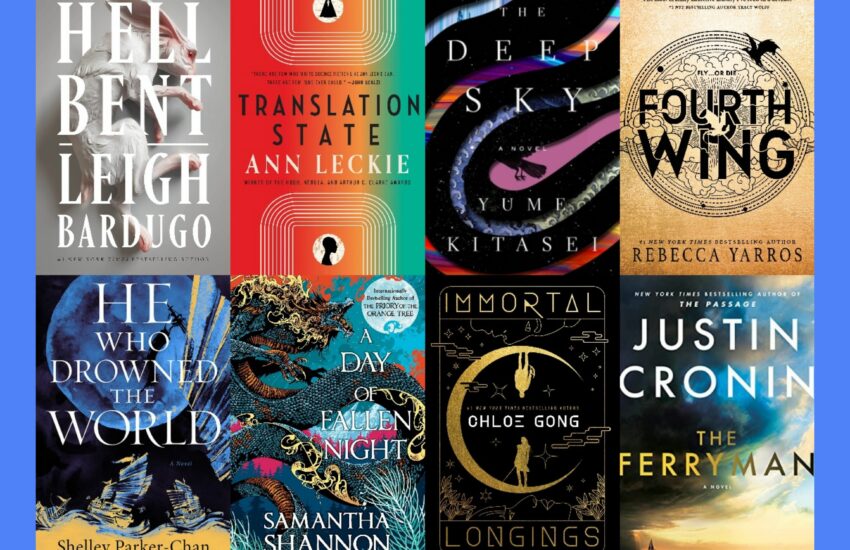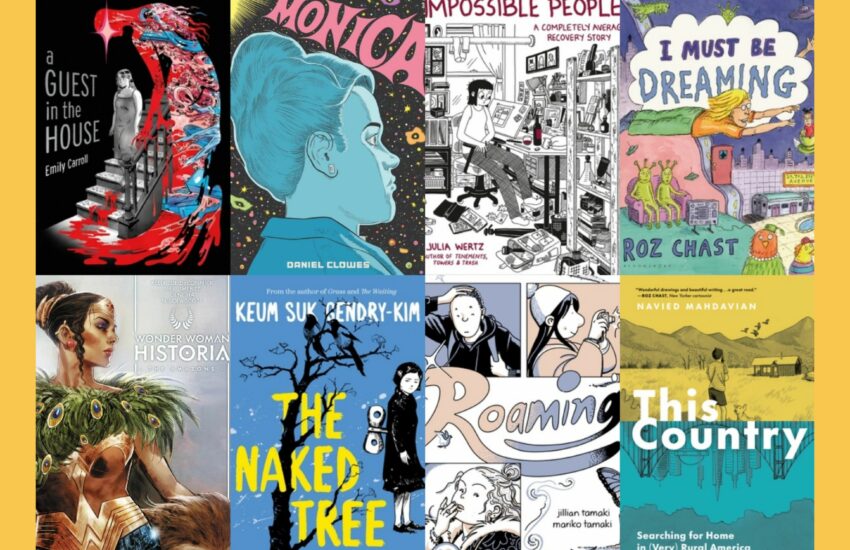The Best Books For Startups And Founders
“What are the best books about and for Startups?” We looked at 158 of the top Sturtup books, aggregating and ranking them so we could answer that very question!
The top 20 titles, all appearing on 3 or more “Best Startup” book lists, are ranked below by how many lists they appear on. The remaining 125+ titles, as well as the lists we used are in alphabetical order at the bottom of the page.
Happy Scrolling!
Top 20 Books About Startups and Founders
20 .) Crossing The Chasm written by Geoffrey Moore
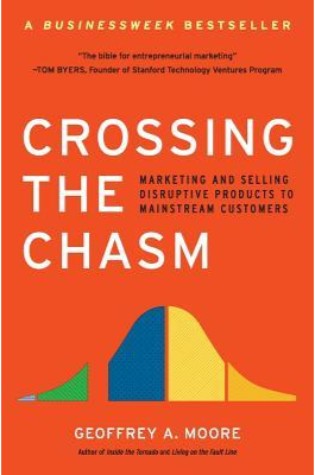
Lists It Appears On:
- Cloud Ways
- Medium
- Yodiz
Here is the bestselling guide that created a new game plan for marketing in high-tech industries. Crossing the Chasm has become the bible for bringing cutting-edge products to progressively larger markets. This edition provides new insights into the realities of high-tech marketing, with special emphasis on the Internet. It’s essential reading for anyone with a stake in the world’s most exciting marketplace.
19 .) Hooked: How to Build Habit-Forming Products written by Nir Eyal
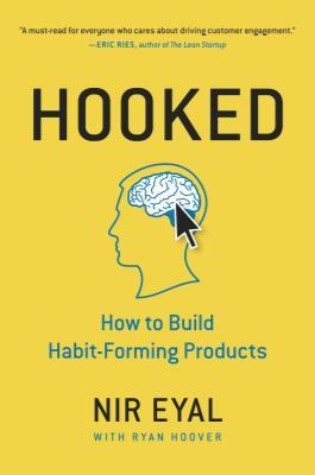
Lists It Appears On:
- Cloud Ways
- Micro Startups
- Rocket Space
How do successful companies create products people can’t put down? Why do some products capture widespread attention while others flop? What makes us engage with certain products out of sheer habit? Is there a pattern underlying how technologies hook us? Nir Eyal answers these questions (and many more) by explaining the Hook Model—a four-step process embedded into the products of many successful companies to subtly encourage customer behavior. Through consecutive “hook cycles,” these products reach their ultimate goal of bringing users back again and again without depending on costly advertising or aggressive messaging. Hooked is based on Eyal’s years of research, consulting, and practical experience. He wrote the book he wished had been available to him as a start-up founder—not abstract theory, but a how-to guide for building better products. Hooked is written for product managers, designers, marketers, start-up founders, and anyone who seeks to understand how products influence our behavior.
18 .) Rework written by Jason Fried and David Heinemeier Hansson
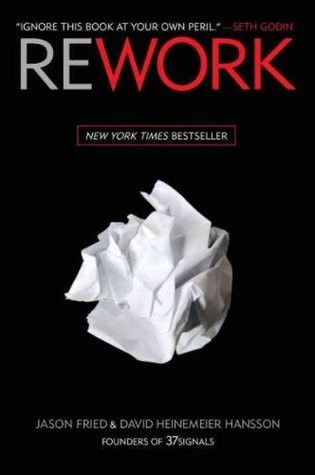
Lists It Appears On:
- Micro Startups
- My Millennial Guide
- Salvador Briggman
Most business books give you the same old advice: Write a business plan, study the competition, seek investors, yadda yadda. If you’re looking for a book like that, put this one back on the shelf. Rework shows you a better, faster, easier way to succeed in business. Read it and you’ll know why plans are actually harmful, why you don’t need outside investors, and why you’re better off ignoring the competition. The truth is, you need less than you think. You don’t need to be a workaholic. You don’t need to staff up. You don’t need to waste time on paperwork or meetings. You don’t even need an office. Those are all just excuses. What you really need to do is stop talking and start working. This book shows you the way. You’ll learn how to be more productive, how to get exposure without breaking the bank, and tons more counterintuitive ideas that will inspire and provoke you. With its straightforward language and easy-is-better approach, Rework is the perfect playbook for anyone who’s ever dreamed of doing it on their own. Hardcore entrepreneurs, small-business owners, people stuck in day jobs they hate, victims of “downsizing,” and artists who don’t want to starve anymore will all find valuable guidance in these pages.
17 .) Setting The Table written by Danny Meyer
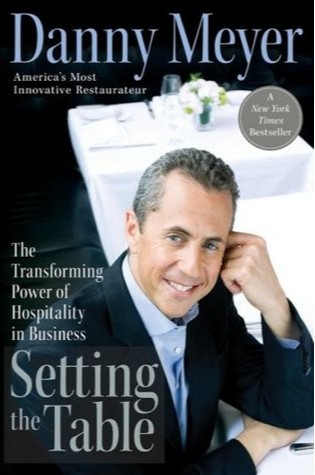
Lists It Appears On:
- Business Insider
- Micro Startups
- Startups
16 .) The Art of the Start written by Guy Kawasaki
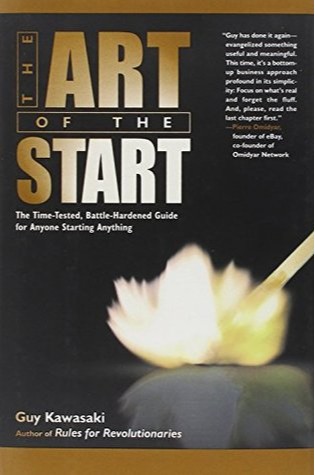
Lists It Appears On:
- Cloud Ways
- Inspiration Feed
- Micro Startups
A new product, a new service, a new company, a new division, a new organization, a new anything—where there’s a will, here’s the way. It begins with a dream that just won’t quit, the once-in-a-lifetime thunderbolt of pure inspiration, the obsession, the world-beater, the killer app, the next big thing. Everyone who wants to make the world a better place becomes possessed by a grand idea. But what does it take to turn your idea into action? Whether you are an entrepreneur, intrapreneur, or not-for-profit crusader, there’s no shortage of advice available on issues such as writing a business plan, recruiting, raising capital, and branding. In fact, there are so many books, articles, and Web sites that many startups get bogged down to the point of paralysis. Or else they focus on the wrong priorities and go broke before they discover their mistakes. In The Art of the Start, Guy Kawasaki brings two decades of experience as one of business’s most original and irreverent strategists to offer the essential guide for anyone starting anything, from a multinational corporation to a church group. At Apple in the 1980s, he helped lead one of the great companies of the century, turning ordinary consumers into evangelists. As founder and CEO of Garage Technology Ventures, a venture capital firm, he has field-tested his ideas with dozens of newly hatched companies. And as the author of bestselling business books and articles, he has advised thousands of people who are making their startup dreams real. From raising money to hiring the right people, from defining your positioning to creating a brand, from creating buzz to buzzing the competition, from managing a board to fostering a community, this book will guide you through an adventure that’s more art than science—the art of the start.
15 .) The Art of the Start 2.0: The Time-Tested, Battle-Hardened Guide for Anyone Starting Anything written by Guy Kawasaki
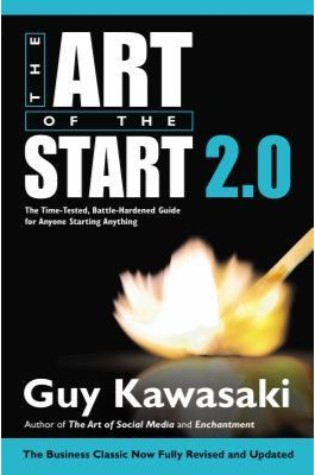
Lists It Appears On:
- Business Insider
- Kanguro
- Salvador Briggman
14 .) The Power of Broke written by Daymond John and Daniel Paisner

Lists It Appears On:
- Black Excellence
- Cloud Ways
- Yodiz
Daymond John has been practicing the power of broke ever since he started selling his home-sewn t-shirts on the streets of Queens. With no funding and a $40 budget, Daymond had to come up with out-of-the box ways to promote his products. Luckily, desperation breeds innovation, and so he hatched an idea for a creative campaign that eventually launched the FUBU brand into a $6 billion dollar global phenomenon. But it might not have happened if he hadn’t started out broke – with nothing but a heart full of hope and a ferocious drive to succeed by any means possible. Here, the FUBU founder and star of ABC’s Shark Tank shows that, far from being a liability, broke can actually be your greatest competitive advantage as an entrepreneur. Why? Because starting a business from broke forces you to think more creatively. It forces you to use your resources more efficiently. It forces you to connect with your customers more authentically, and market your ideas more imaginatively. It forces you to be true to yourself, stay laser focused on your goals, and come up with those innovative solutions required to make a meaningful mark. Drawing his own experiences as an entrepreneur and branding consultant, peeks behind-the scenes from the set of Shark Tank, and stories of dozens of other entrepreneurs who have hustled their way to wealth, John shows how we can all leverage the power of broke to phenomenal success. You’ll meet: · Steve Aoki, the electronic dance music (EDM) deejay who managed to parlay a series of $100 gigs into becoming a global superstar who has redefined the music industry · Gigi Butler, a cleaning lady from Nashville who built cupcake empire on the back of a family recipe, her maxed out credit cards, and a heaping dose of faith · 11-year old Shark Tank guest Mo Bridges who stitched together a winning clothing line with just his grandma’s sewing machine, a stash of loose fabric, and his unique sartorial flair When your back is up against the wall, your bank account is empty, and creativity and passion are the only resources you can afford, success is your only option. Here you’ll learn how to tap into that Power of Broke to scrape, hustle, and dream your way to the top.
13 .) The Power of Habit written by Charles Duhigg
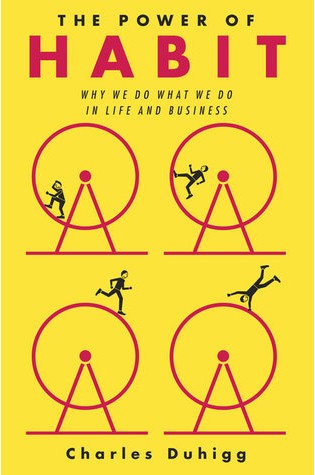
Lists It Appears On:
- Cloud Ways
- Influenced Digest
- My Millennial Guide
A young woman walks into a laboratory. Over the past two years, she has transformed almost every aspect of her life. She has quit smoking, run a marathon, and been promoted at work. The patterns inside her brain, neurologists discover, have fundamentally changed. Marketers at Procter & Gamble study videos of people making their beds. They are desperately trying to figure out how to sell a new product called Febreze, on track to be one of the biggest flops in company history. Suddenly, one of them detects a nearly imperceptible pattern—and with a slight shift in advertising, Febreze goes on to earn a billion dollars a year. An untested CEO takes over one of the largest companies in America. His first order of business is attacking a single pattern among his employees—how they approach worker safety—and soon the firm, Alcoa, becomes the top performer in the Dow Jones. What do all these people have in common? They achieved success by focusing on the patterns that shape every aspect of our lives. They succeeded by transforming habits. In The Power of Habit, award-winning New York Times business reporter Charles Duhigg takes us to the thrilling edge of scientific discoveries that explain why habits exist and how they can be changed. With penetrating intelligence and an ability to distill vast amounts of information into engrossing narratives, Duhigg brings to life a whole new understanding of human nature and its potential for transformation. Along the way we learn why some people and companies struggle to change, despite years of trying, while others seem to remake themselves overnight. We visit laboratories where neuroscientists explore how habits work and where, exactly, they reside in our brains. We discover how the right habits were crucial to the success of Olympic swimmer Michael Phelps, Starbucks CEO Howard Schultz, and civil-rights hero Martin Luther King, Jr. We go inside Procter & Gamble, Target superstores, Rick Warren’s Saddleback Church, NFL locker rooms, and the nation’s largest hospitals and see how implementing so-called keystone habits can earn billions and mean the difference between failure and success, life and death. At its core, The Power of Habit contains an exhilarating argument: The key to exercising regularly, losing weight, raising exceptional children, becoming more productive, building revolutionary companies and social movements, and achieving success is understanding how habits work. Habits aren’t destiny. As Charles Duhigg shows, by harnessing this new science, we can transform our businesses, our communities, and our lives.
12 .) Venture Deals written by Brad Feld and Jason Mendelson
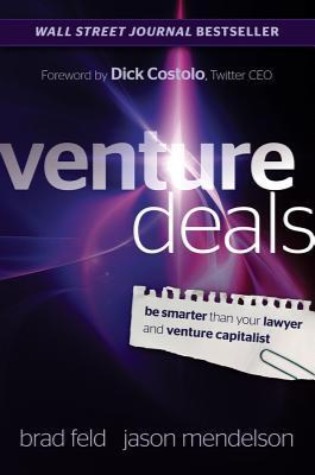
Lists It Appears On:
- Angel Kings
- Cloud Ways
- Startups
Praise for Venture Deals”My biggest nightmare is taking advantage of an entrepreneur without even realizing it. It happens because VCs are experts in financings and most entrepreneurs are not. Brad and Jason are out to fix that problem with Venture Deals. This book is long overdue and badly needed.” Fred Wilson, Managing Partner, Union Square Ventures”Feld and Mendelson pack a graduate-level course into this energetic and accessible book.?The authors’ frank style and incisive insight make this a must-read for high-growth company entrepreneurs, early-stage investors, and graduate students.?Start here if you want to understand venture capital deal structure and strategies.?I enthusiastically recommend.” Brad Bernthal, CU Boulder, Associate Clinical Professor ofLaw, Technology Policy, Entrepreneurial Law”A must-read book for entrepreneurs.?Brad and Jason demystify the overly complex world of term sheets and M&A, cutting through the legalese and focusing on what really matters.?That’s a good thing not just for entrepreneurs, but also for venture capitalists, angels, and lawyers.?Having an educated entrepreneur on the other side of the table means you spend your time negotiating the important issues and ultimately get to the right deal faster.” Greg Gottesman, Managing Director, Madrona Venture Group”Venture Deals is a must-read for any entrepreneur contemplating or currently leading a venture-backed company. Brad and Jason are highly respected investors who shoot straight from the hip and tell it like it is, bringing a level of transparency to a process that is rarely well understood. It’s like having a venture capitalist as a best friend who is looking out for your best interests and happy to answer all of your questions.” Emily Mendell, Vice President of Communications,National Venture Capital Association”The adventure of starting and growing a company can be exhilarating or excruciatingor both. Feld and Mendelson have done a masterful job of shedding light on what can either become one of the most helpful or dreadful experiences for entrepreneursaccepting venture capital into their firm. This book takes the lid off the black box and helps entrepreneurs understand the economics and control provisions of working with a venture partner.”
11 .) How to Win Friends and Influence People written by Dale Carnegie

Lists It Appears On:
- Digital
- Groove HQ
- Influenced Digest
- Micro Startups
You can go after the job you want…and get it! You can take the job you have…and improve it! You can take any situation you’re in…and make it work for you! Since its release in 1936, How to Win Friends and Influence People has sold more than 15 million copies. Dale Carnegie’s first book is a timeless bestseller, packed with rock-solid advice that has carried thousands of now famous people up the ladder of success in their business and personal lives. As relevant as ever before, Dale Carnegie’s principles endure, and will help you achieve your maximum potential in the complex and competitive modern age. Learn the six ways to make people like you, the twelve ways to win people to your way of thinking, and the nine ways to change people without arousing resentment.
10 .) Lean Analytics written by Alistair Croll and Benjamin Yoskovitz
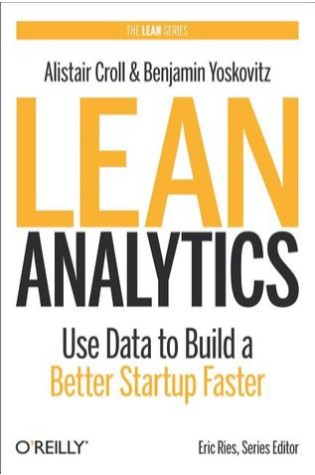
Lists It Appears On:
- Groove HQ
- Kanguro
- My Millennial Guide
- Startup Boot Camp
Whether you’re a startup founder trying to disrupt an industry or an intrapreneur trying to provoke change from within, your biggest challenge is creating a product people actually want. Lean Analytics steers you in the right direction. This book shows you how to validate your initial idea, find the right customers, decide what to build, how to monetize your business, and how to spread the word. Packed with more than thirty case studies and insights from over a hundred business experts, Lean Analytics provides you with hard-won, real-world information no entrepreneur can afford to go without. Understand Lean Startup, analytics fundamentals, and the data-driven mindset Look at six sample business models and how they map to new ventures of all sizes Find the One Metric That Matters to you Learn how to draw a line in the sand, so you’ll know it’s time to move forward Apply Lean Analytics principles to large enterprises and established products
9 .) Start With Why written by Simon Sinek

Lists It Appears On:
- Cloud Ways
- Digital
- Influenced Digest
- Startups
Why do you do what you do? Why are some people and organizations more innovative, more influential, and more profitable than others? Why do some command greater loyalty from customers and employees alike? Even among the successful, why are so few able to repeat their success over and over? People like Martin Luther King Jr., Steve Jobs, and the Wright Brothers might have little in common, but they all started with why. It was their natural ability to start with why that enabled them to inspire those around them and to achieve remarkable things. In studying the leaders who’ve had the greatest influence in the world, Simon Sinek discovered that they all think, act, and communicate in the exact same way—and it’s the complete opposite of what everyone else does. Sinek calls this powerful idea The Golden Circle, and it provides a framework upon which organizations can be built, movements can be lead, and people can be inspired. And it all starts with WHY. Any organization can explain what it does; some can explain how they do it; but very few can clearly articulate why. WHY is not money or profit—those are always results. WHY does your organization exist? WHY does it do the things it does? WHY do customers really buy from one company or another? WHY are people loyal to some leaders, but not others? Starting with WHY works in big business and small business, in the nonprofit world and in politics. Those who start with WHY never manipulate, they inspire.
8 .) Steve Jobs written by Walter Isaacson
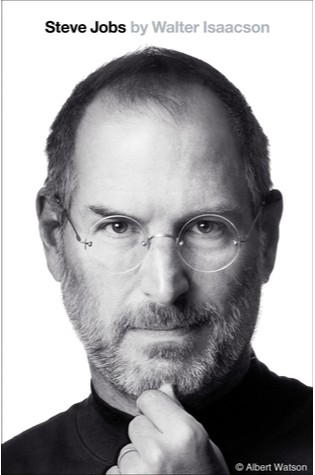
Lists It Appears On:
- Influenced Digest
- Medium
- Micro Startups
- Yodiz
From best-selling author Walter Isaacson comes the landmark biography of Apple co-founder Steve Jobs. In Steve Jobs: The Exclusive Biography, Isaacson provides an extraordinary account of Jobs’ professional and personal life. Drawn from three years of exclusive and unprecedented interviews Isaacson has conducted with Jobs as well as extensive interviews with Jobs’ family members and key colleagues from Apple and its competitors, Steve Jobs: The Exclusive Biography is the definitive portrait of the greatest innovator of his generation.
7 .) The Startup Owner’s Manual written by Steve Blank
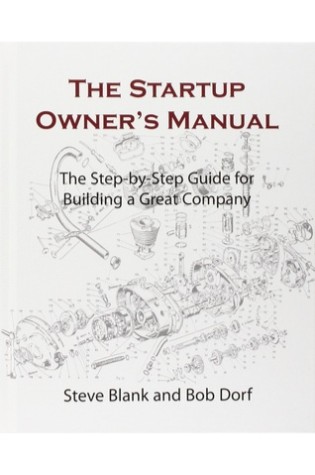
Lists It Appears On:
- Cloud Ways
- Micro Startups
- My Millennial Guide
- Startups
Now a decade after the Four Steps to the Epiphany sparked the Lean Startup revolution, comes its sequel… The Startup Owner’s Manual The Manual incorporates 10 years of learning and best practices that have swept the startup world. It: Incorporates the “Business Model Canvas” as the organizing principle for startup hypotheses Provides separate paths and advice for web/mobile products versus physical products Offers a wealth of detailed instruction on how to get, keep, and grow customers recognizing the different techniques for web and physical channels And teaches a “new math” for startups: “metrics that matter for fueling growth” The Startup Owner’s Manual is a step-by-step, near-encyclopedic reference manual or “how to” for building a successful, scalable startup. Want to know what to do the first, week, month or year? What’s the right distribution channel for your product? How to get traffic to your web site? …and how to activate customers or users on arrival? Who are the right “first customers,” and why? …plus many more great tips in nearly 500 pages, complete with index, glossary, and Customer Development Checklists It’s the indispensible reference guide for any startup founder, entrepreneur, investor or educator.
6 .) Will It Fly? written by Thomas K. McKnight
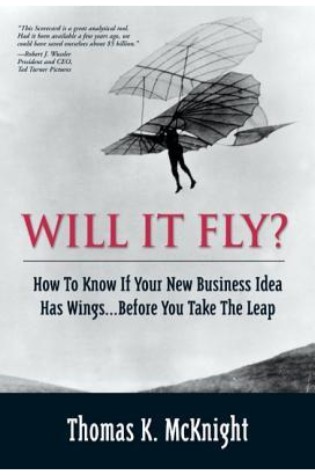
Lists It Appears On:
- Business Insider
- Cloud Ways
- Micro Startups
- Startups
Will your new business idea fly? Find out upfront, before you invest one dime! Will It Fly? introduces the first intuitive, practical tool for assessing and refining new business ideas. Fast, confidential, and reliable, it addresses 44 key elements of success, distilling experience from more than 200 business launches. Use it to fine-tune your idea… protect yourself and your investors… quickly evaluate multiple options… and dramatically improve your odds of success. Indispensable for every entrepreneur, investor, and advisor… even corporate planners and “intrapreneurs”!
5 .) The Innovator’s Dilemma written by Clayton Christensen
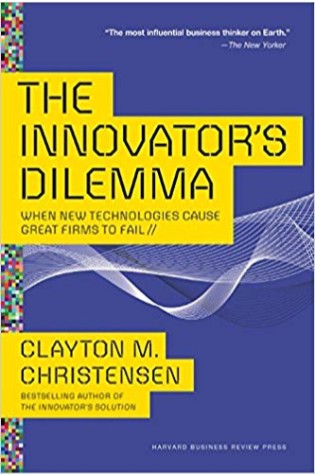
Lists It Appears On:
- Cloud Ways
- Groove HQ
- Kanguro
- Medium
- Salvador Briggman
His work is cited by the world’s best-known thought leaders, from Steve Jobs to Malcolm Gladwell. In this classic bestseller—one of the most influential business books of all time—innovation expert Clayton Christensen shows how even the most outstanding companies can do everything right—yet still lose market leadership.
4 .) Good to Great written by Jim Collins
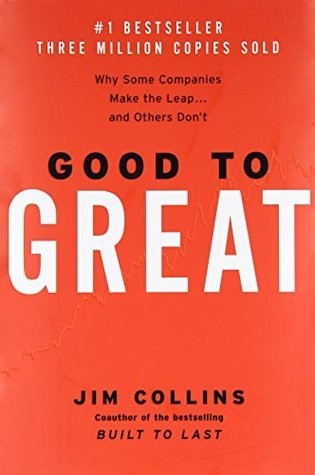
Lists It Appears On:
- Cloud Ways
- Influenced Digest
- Inspiration Feed
- Medium
- Net Registry
- Startups
To find the keys to greatness, Collins’s 21-person research team read and coded 6,000 articles, generated more than 2,000 pages of interview transcripts and created 384 megabytes of computer data in a five-year project. The findings will surprise many readers and, quite frankly, upset others. The Challenge Built to Last, the defining management study of the nineties, showed how great companies triumph over time and how long-term sustained performance can be engineered into the DNA of an enterprise from the very beginning. But what about the company that is not born with great DNA? How can good companies, mediocre companies, even bad companies achieve enduring greatness? The Study For years, this question preyed on the mind of Jim Collins. Are there companies that defy gravity and convert long-term mediocrity or worse into long-term superiority? And if so, what are the universal distinguishing characteristics that cause a company to go from good to great? The Standards Using tough benchmarks, Collins and his research team identified a set of elite companies that made the leap to great results and sustained those results for at least fifteen years. How great? After the leap, the good-to-great companies generated cumulative stock returns that beat the general stock market by an average of seven times in fifteen years, better than twice the results delivered by a composite index of the world’s greatest companies, including Coca-Cola, Intel, General Electric, and Merck. The Comparisons The research team contrasted the good-to-great companies with a carefully selected set of comparison companies that failed to make the leap from good to great. What was different? Why did one set of companies become truly great performers while the other set remained only good? The Findings The findings of the Good to Great study will surprise many readers and shed light on virtually every area of management strategy and practice. The findings include: Level 5 Leaders: The research team was shocked to discover the type of leadership required to achieve greatness. The Hedgehog Concept (Simplicity within the Three Circles): To go from good to great requires transcending the curse of competence. A Culture of Discipline: When you combine a culture of discipline with an ethic of entrepreneurship, you get the magical alchemy of great results. Technology Accelerators: Good-to-great companies think differently about the role of technology.
3 .) The $100 Startup written by Chris Guillebeau
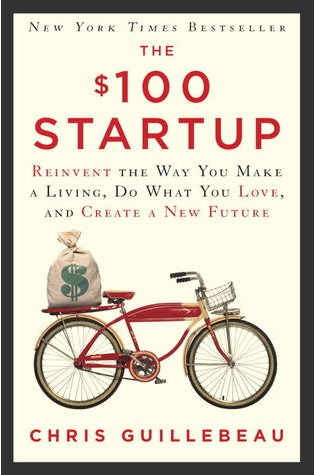
Lists It Appears On:
- Black Excellence
- Cloud Ways
- Digital
- Influenced Digest
- Kanguro
- Micro Startups
- Yodiz
In The $100 Startup, Chris Guillebeau shows you how to lead of life of adventure, meaning and purpose – and earn a good living. Still in his early thirties, Chris is on the verge of completing a tour of every country on earth – he’s already visited more than 175 nations – and yet he’s never held a “real job” or earned a regular paycheck. Rather, he has a special genius for turning ideas into income, and he uses what he earns both to support his life of adventure and to give back. There are many others like Chris – those who’ve found ways to opt out of traditional employment and create the time and income to pursue what they find meaningful. Sometimes, achieving that perfect blend of passion and income doesn’t depend on shelving what you currently do. You can start small with your venture, committing little time or money, and wait to take the real plunge when you’re sure it’s successful. In preparing to write this book, Chris identified 1,500 individuals who have built businesses earning $50,000 or more from a modest investment (in many cases, $100 or less), and from that group he’s chosen to focus on the 50 most intriguing case studies. In nearly all cases, people with no special skills discovered aspects of their personal passions that could be monetized, and were able to restructure their lives in ways that gave them greater freedom and fulfillment. Here, finally, distilled into one easy-to-use guide, are the most valuable lessons from those who’ve learned how to turn what they do into a gateway to self-fulfillment. It’s all about finding the intersection between your “expertise” – even if you don’t consider it such — and what other people will pay for. You don’t need an MBA, a business plan or even employees. All you need is a product or service that springs from what you love to do anyway, people willing to pay, and a way to get paid. Not content to talk in generalities, Chris tells you exactly how many dollars his group of unexpected entrepreneurs required to get their projects up and running; what these individuals did in the first weeks and months to generate significant cash; some of the key mistakes they made along the way, and the crucial insights that made the business stick. Among Chris’s key principles: if you’re good at one thing, you’re probably good at something else; never teach a man to fish – sell him the fish instead; and in the battle between planning and action, action wins. In ancient times, people who were dissatisfied with their lives dreamed of finding magic lamps, buried treasure, or streets paved with gold.
2 .) The Hard Thing about Hard Things: Building a Business When There are No Easy Answers written by Ben Horowitz
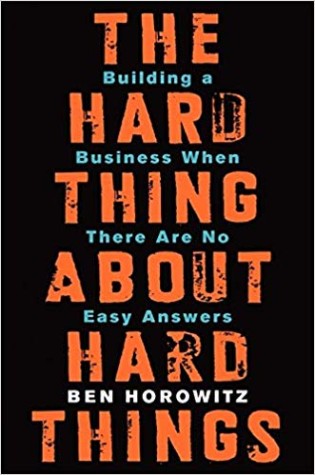
Lists It Appears On:
- Cloud Ways
- Digital
- Inspiration Feed
- Medium
- Micro Startups
- Startup Grind
- Startups
While many people talk about how great it is to start a business, very few are honest about how difficult it is to run one. Ben Horowitz analyzes the problems that confront leaders every day, sharing the insights he’s gained developing, managing, selling, buying, investing in, and supervising technology companies. A lifelong rap fanatic, he amplifies business lessons with lyrics from his favorite songs, telling it straight about everything from firing friends to poaching competitors, cultivating and sustaining a CEO mentality to knowing the right time to cash in.
1 .) The Lean Startup written by Eric Ries
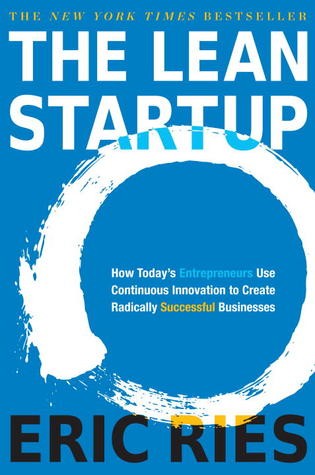
Lists It Appears On:
- Angel Kings
- Business Insider
- Cloud Ways
- Digital
- Groove HQ
- Influenced Digest
- Inspiration Feed
- Kanguro
- Micro Startups
- My Millennial Guide
- Salvador Briggman
- Startup Boot Camp
- Startups
- Yodiz
Most startups fail. But many of those failures are preventable. The Lean Startup is a new approach being adopted across the globe, changing the way companies are built and new products are launched. Eric Ries defines a startup as an organization dedicated to creating something new under conditions of extreme uncertainty. This is just as true for one person in a garage or a group of seasoned professionals in a Fortune 500 boardroom. What they have in common is a mission to penetrate that fog of uncertainty to discover a successful path to a sustainable business. The Lean Startup approach fosters companies that are both more capital efficient and that leverage human creativity more effectively. Inspired by lessons from lean manufacturing, it relies on “validated learning,” rapid scientific experimentation, as well as a number of counter-intuitive practices that shorten product development cycles, measure actual progress without resorting to vanity metrics, and learn what customers really want. It enables a company to shift directions with agility, altering plans inch by inch, minute by minute. Rather than wasting time creating elaborate business plans, The Lean Startup offers entrepreneurs – in companies of all sizes – a way to test their vision continuously, to adapt and adjust before it’s too late. Ries provides a scientific approach to creating and managing successful startups in a age when companies need to innovate more than ever.
The 125+ Additional Best Startup Books For Founders
| # | Books | Authors | Lists |
| 21 | Awaken The Giant Within | Tony Robbins | Influenced Digest |
| – | – | – | Yodiz |
| 22 | Business Model Generation: A Handbook for Visionaries, Game Changers, and Challengers | Alexander Osterwalder and Yves Pigneur | Startups |
| – | – | – | Yodiz |
| 23 | Contagious: Why Things Catch On | Jonah Berger | Black Excellence |
| – | – | – | Medium |
| 24 | Do More Faster | David Cohen and Brad Feld | Groove HQ |
| – | – | – | Inspiration Feed |
| 25 | Elon Musk: Tesla, SpaceX, and the Quest for a Fantastic Future | Ashlee Vance | Salvador Briggman |
| – | – | – | Yodiz |
| 26 | Founders at Work | Jessica Livingston | Cloud Ways |
| – | – | – | Inspiration Feed |
| 27 | How to Transform Your Ideas into Software Products | Poornima Vijayashanker | Cloud Ways |
| – | – | – | Startups |
| 28 | Jab, Jab, Jab, Right Hook: How to Tell Your Story in a Noisy Social World | Gary Vaynerchuk | Business Insider |
| – | – | – | Micro Startups |
| 29 | Losing my Virginity | Richard Branson | Influenced Digest |
| – | – | – | Net Registry |
| 30 | Only The Paranoid Survive | Andrew Grove | Inspiration Feed |
| – | – | – | Medium |
| 31 | Originals | Adam Grant | Micro Startups |
| – | – | – | Yodiz |
| 32 | Simple Numbers, Straight Talk, Big Profits!: 4 Keys to Unlock Your Business Potential | Greg Crabtree | Business Insider |
| – | – | – | Micro Startups |
| 33 | Start Something That Matters | Blake Mycoskie | Cloud Ways |
| – | – | – | Micro Startups |
| 34 | The 4-Hour Work Week | Timothy Ferriss | Digital |
| – | – | – | Yodiz |
| 35 | The 7 Day Startup | Dan Norris and Rob Walling | Cloud Ways |
| – | – | – | Yodiz |
| 36 | The E-Myth Revisited | Cloud Ways | |
| – | – | – | Digital |
| 37 | The Industries of the Future | Alec Ross | Micro Startups |
| – | – | – | Rocket Space |
| 38 | The Millionaire Fastlane | MJ DeMarco | Black Excellence |
| – | – | – | Digital |
| 39 | The Obstacle is the Way | Ryan Holiday | Digital |
| – | – | – | Influenced Digest |
| 40 | Think Big, Act Small | Jason Jennings | Micro Startups |
| – | – | – | Yodiz |
| 41 | Tools of Titans | Tim Ferris | Influenced Digest |
| – | – | – | My Millennial Guide |
| 42 | Traction | Cloud Ways | |
| – | – | – | Digital |
| 43 | Trust Me, I’m Lying: Confessions of a Media Manipulator | Ryan Holiday | Digital |
| – | – | – | Groove HQ |
| 44 | 10 Books That Screwed Up The World | Benjamin Wiker. | Startup Grind |
| 45 | 12 Rules For Life: An Antitode to Chaos | Jordan Peterson | Influenced Digest |
| 46 | 32 Ways to Be a Champion in Business, | Earvin | Business Insider |
| 47 | 3D Negotiation | David A. Lax and James K. | Net Registry |
| 48 | 48 Laws of Power | Robert Greene | Influenced Digest |
| 49 | A Class with Drucker | William A. Cohen. | Startup Grind |
| 50 | An Awesome Book! A little book about dreaming big | Dallas Clayton. | Startups |
| 51 | Become Your Own Boss in 12 Months: A Month-by-Month Guide to a Business That Works, | Melinda F. Emerson | Business Insider |
| 52 | Bookstck | Product Hunt | |
| 53 | Boss Life | Paul Downs | My Millennial Guide |
| 54 | Build Your Dream Network | J. Kelly Hoey | Startups |
| 55 | Change | Design | Medium |
| 56 | Conscious Capitalism | Rocket Space | |
| 57 | Creativity, Inc.: Overcoming the Unseen Forces That Stand in the Way of True Inspiration | Cloud Ways | |
| 58 | Dear Female Founder: 66 Letters of Advice from Women Entrepreneurs Who Have Made $1 Billion in Revenue | Small Biz Trends | |
| 59 | Driven | Robert Herjavec | Yodiz |
| 60 | Eat That Frog | Brian Tracy | Influenced Digest |
| 61 | Ego is the Enemy | Ryan Holiday | Influenced Digest |
| 62 | Entrepreneur Revolution: How to Develop Your Entrepreneurial Mindset and Start a Business That Works by Daniel Priestley | Micro Startups | |
| 63 | Entrepreneurial You: Monetize Your Expertise, Create Multiple Income Streams, and Thrive, | Dorie Clark | Business Insider |
| 64 | Extreme Ownership | Jocko Willink and Leif Babin | Yodiz |
| 65 | Financially Chic: Live a Luxurious Life on a Budget, Learn to Love Managing Money, and Grow Your Wealth | Small Biz Trends | |
| 66 | Finding My Virginity (Richard Branson Auto-biography) | Medium | |
| 67 | Flow: The Psychology of Optimal Experience by Mihály Csíkszentmihályi | Groove HQ | |
| 68 | Four Hour Book Club | Product Hunt | |
| 69 | Free Prize Inside | Seth Godin | Inspiration Feed |
| 70 | From Idea to Web Startup in 21 Days | Jason Glaspey and Scott Kveton | Inspiration Feed |
| 71 | Funded: The Entrepreneur’s Guide to Raising Your First Round | Small Biz Trends | |
| 72 | Gamestorming | Kanguro | |
| 73 | Get Backed | Evan Baehr and Evan Loomis | Yodiz |
| 74 | Hackers and Painters Big Ideas from a Computer Age | Paul Graham | Inspiration Feed |
| 75 | High Output Management | Andrew Grove | Medium |
| 76 | Hot Women Rock: How to Discover Your Entrepreneurial Mojo | Small Biz Trends | |
| 77 | How Successful People Grow | John Maxwell | Influenced Digest |
| 78 | Influence: The Psychology of Persuasion | Robert Cialdini | Influenced Digest |
| 79 | Innovation and Entrepreneurship | Kanguro | |
| 80 | Life of the Party:The Remarkable Story of How Brownie Wise Built and Lost a Tupperware Empire | Small Biz Trends | |
| 81 | Long Walk To Freedom | Nelson Mandela | Black Excellence |
| 82 | Lost and Founder | Rand Fishkin | Startups |
| 83 | Love Your Life, Not Theirs: 7 Money Habits for Living the Life You Want | Small Biz Trends | |
| 84 | Managing Startups | Kanguro | |
| 85 | Mastering the VC Game | Cloud Ways | |
| 86 | Mastery | Robert Greene | Influenced Digest |
| 87 | Mom Boss: Balancing Entrepreneurship, Kids & Success | Small Biz Trends | |
| 88 | My Start-Up Life | Ben Casnocha | Inspiration Feed |
| 89 | Networking with Millionaires | Thomas J. Stanley. | Startup Grind |
| 90 | Never Split the Difference | Chris Voss. | Startup Grind |
| 91 | Never Too Late to Startup | Cloud Ways | |
| 92 | Once You’re Lucky, Twice You’re Good | Sarah Lacy | Inspiration Feed |
| 93 | Online Business Startup: The Entrepreneur’s Guide to Launching a Fast, Lean and Profitable Online Venture | Robin Waite | Micro Startups |
| 94 | Permission Marketing by Seth Godin | Groove HQ | |
| 95 | Power Your Happy: Work Hard, Play Nice & Build Your Dream Life | Small Biz Trends | |
| 96 | Predictable Revenue by Aaron Ross and Marylou Tyler | Groove HQ | |
| 97 | Predictably Irrational | Digital | |
| 98 | Pretotype it | Alberto Savoia | Startups |
| 99 | Product Leadership | Martin Eriksson, Nate Walkingshaw, and Richard Banfield | Medium |
| 100 | Radical Candor | Kim Scott | Startups |
| 101 | Reinventing Organisations | Kanguro | |
| 102 | Running Lean | Cloud Ways | |
| 103 | Screw it, Let’s do it | Cloud Ways | |
| 104 | Shoe Dog | Phil Knight | Influenced Digest |
| 105 | Slowing Down: Unexpected Ways to Thrive as a Female Leader | Small Biz Trends | |
| 106 | Start Me Up!: The No-Business-Plan Business Plan | Ebong Eka | Startups |
| 107 | Start-up Nation | Dan Senor and Saul Singer | Yodiz |
| 108 | Startup Communities | Kanguro | |
| 109 | Startup Nation | Kanguro | |
| 110 | Startupland | Rocket Space | |
| 111 | SuperBosses | Cloud Ways | |
| 112 | Talk Like TED | Kanguro | |
| 113 | The 10X Rule | Grant Cardone | Startups |
| 114 | The 22 Immutable Laws of Marketing by Al Ries and Jack Trout | Groove HQ | |
| 115 | The 7 Habits of Highly Effective People | Stephen R. Covey | Yodiz |
| 116 | The Alchemist | Paulo Coelho | Influenced Digest |
| 117 | The Alliance | Reid Hoffman | Medium |
| 118 | The Art of War | Sun Tzu | Influenced Digest |
| 119 | The Bite in the Apple | Chrisann Brennan. | Startup Grind |
| 120 | The Checklist Manifesto | Atul Gawande | Startups |
| 121 | The Checklist Manifesto: How to Get Things Right | Cloud Ways | |
| 122 | The Compound Effect | Darren Hardy | Influenced Digest |
| 123 | The Entrepreneur’s Guide to Customer Development | Brant Cooper | Inspiration Feed |
| 124 | The Everything Store | Brad Stone | Influenced Digest |
| 125 | The Fifth Trimester: The Working Mom’s Guide to Style, Sanity, and Big Success After Baby | Small Biz Trends | |
| 126 | The First 90 Days | Michael Watkins | Influenced Digest |
| 127 | The Fish That Ate The Whale by Rich Cohen | Groove HQ | |
| 128 | The Five Temptations of a CEO | Patrick Lencioni. | Startup Grind |
| 129 | The Founder’s Dilemmas: Anticipating and Avoiding the Pitfalls That Can Sink a Startup, | Noam Wasserman | Business Insider |
| 130 | The Four Steps to the Epiphany | Cloud Ways | |
| 131 | The Heart of Change | John D. Kotter. | Startup Grind |
| 132 | The Law of Success | Napoleon Hill | Influenced Digest |
| 133 | The Little Red Book of Selling | Jeffrey | Net Registry |
| 134 | The Magic of Thinking Big | David Schwartz | Influenced Digest |
| 135 | The Mom Test | Rob Fitzpatrick | Startup Boot Camp |
| 136 | The New Business Road Test | Kanguro | |
| 137 | The One Page Business Plan for the Creative Entrepreneur, | Jim Horan | Business Insider |
| 138 | The Power of Positive Thinking | Norman Vincent Peale | Influenced Digest |
| 139 | The Power of the Other | Henry Cloud. | Startup Grind |
| 140 | The Sprint Book | Jake Knapp | Startups |
| 141 | The Startup Book Club | Product Hunt | |
| 142 | The Startup Way | Eric Ries | Medium |
| 143 | The Subtle Art of Not Giving F*ck | Mark Manson | Influenced Digest |
| 144 | The Thank You Economy | Gary Vaynerchuk | Inspiration Feed |
| 145 | The Third Wave | Cloud Ways | |
| 146 | The Upstarts | Rocket Space | |
| 147 | The War of Art | Steven Pressfield | Startups |
| 148 | The Year Without Pants by Scott Berkun | Groove HQ | |
| 149 | Think and Grow Rich | Digital | |
| 150 | Think Big, Act Bigger: The Rewards of Being Relentless, | Jeffrey W. Hayzlett | Business Insider |
| 151 | Thinking, Fast and Slow | Daniel Kahneman | Yodiz |
| 152 | Titan: The Life of John D. Rockefeller, Sr. by Ron Chernow | Groove HQ | |
| 153 | To Sell is Human | Daniel H Pink | Yodiz |
| 154 | Total Recall | Arnold Schwarzenegger | Influenced Digest |
| 155 | Tribes | Digital | |
| 156 | Tuff Juice | Caron Butler | Influenced Digest |
| 157 | Viral Loop | Adam L. Penenberg | Inspiration Feed |
| 158 | Your One Word | Rocket Space |
21 Best Books For Startups Sources/Lists
| Source | Article |
| Angel Kings | Top Startup Books – Ranking/List of the Best Books on Startups |
| Black Excellence | Best Books For Startups: The 5 Must Read Books |
| Business Insider | 12 books you should read before starting a business |
| Cloud Ways | 30 Best Startup Books for First-time Entrepreneurs |
| Digital | 15 Books That All Entrepreneurs Should Read |
| Groove HQ | 13 Best Books for Businesses and Startups |
| Influenced Digest | Top 30 Best Startup Books For Entrepreneurs to Read |
| Inspiration Feed | 15 Must-Read Books for Web Startups |
| Kanguro | Best Books on Entrepreneurship for Startups to Read |
| Medium | The 18 Best Startup/Business Books I Have Read This Year |
| Micro Startups | 20 Best Startup Books – Business Books Every |
| My Millennial Guide | Must Read Startup Books: 7 Great Books On Startups and Entrepreneurs |
| Net Registry | Five of the best business books for startups |
| Product Hunt | Top Startup Books – A collection of must-read books for startup |
| Rocket Space | Top 6 Books for Tech Entrepreneurs |
| Salvador Briggman | 6 Tech Startup Books You Must Read |
| Small Biz Trends | 10 Must-Read Books for the Aspiring “Mompreneur” |
| Startup Boot Camp | Top 3 must read books for startups |
| Startup Grind | 9 Books You Should Read in 2018 |
| Startups | 19 Startup Books Every Founder Should Read |
| Yodiz | 21 Great Books On Startups and Entrepreneurs |

